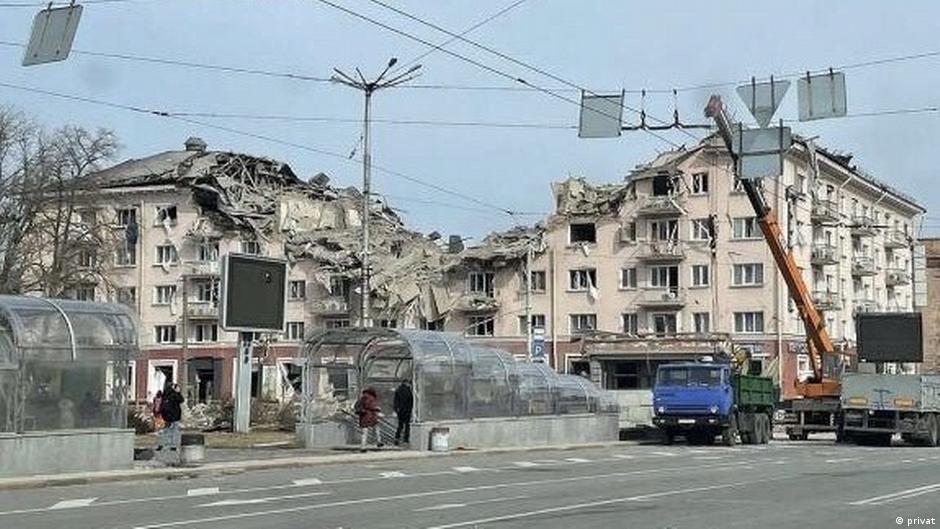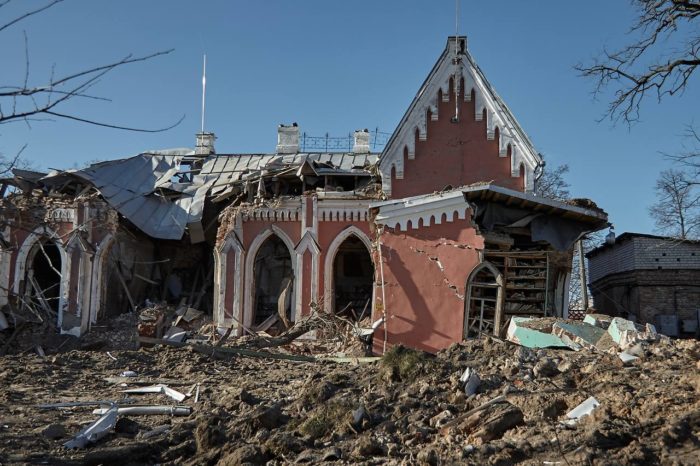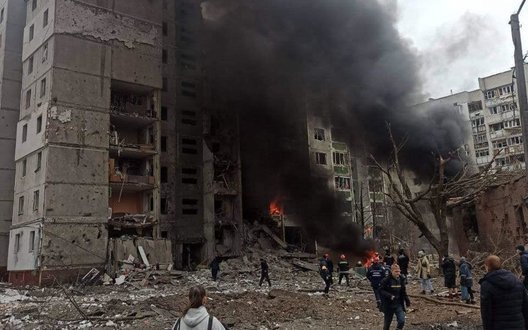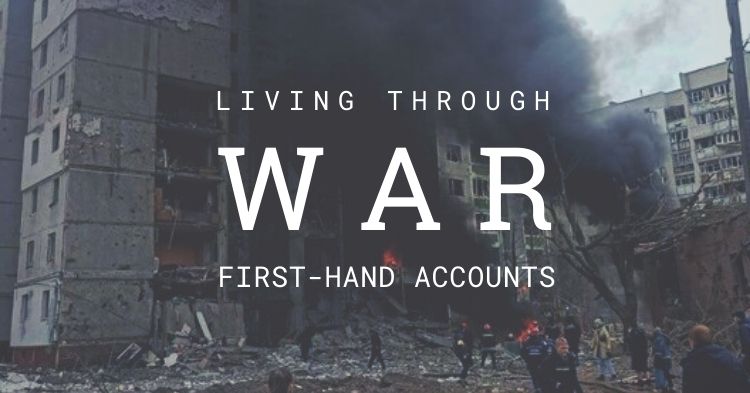What happens in a modern city cut off from electricity for an extended period of time? Volodymyr Boyko’s account comes from mid-March. At the time, the north-Ukrainian city of Chernihiv he lives in had been nearly encircled by the Russian troops which bombed and shelled residential areas to terrorize the city’s residents. Among the first targets of the Russians were power, heating, and water supply infrastructure.
A large modern metropolis spending a week without electricity. Could anyone imagine something like that happening in Ukraine before the war? The damages to the electric grid are a direct result of targeted strikes by the Russians against critical civilian infrastructure. We’re talking about Chernihiv city. Let’s analyze what this really means and what impact it has on people’s daily lives.
70% of Chernihiv destroyed as Russian troops retreat & civilians leave bomb shelters
The power cuts out suddenly, replaced with a new reality and a strikingly different way of life.
You almost completely lose the ability to work – if a job involves using electricity, it’s gone. And we’re not talking about manufacturing or transit services – even sending a simple text message becomes a problem. So it’s not only the factories that can’t work, even the companies selling simple goods or services have to stop doing business since they can’t charge you because their electronic payment system is down. Only if someone got electric generators ahead of time can they stay open. Of course they could only accept cash, and you’d have to wait in line for two hours.
Cash becomes very hard to come by. We’re so used to getting it from the ATMs. But these don’t work because of lack of electricity. Only if you’re lucky enough to stumble upon a working ATM, can you expect to get some life-saving cash after waiting in an endless line. In these circumstances, cashless electronic payments begin to seem like an otherworldly luxury.

Obviously, all public transport is shut down. You can travel by car, bicycle or just walk. The bicycle becomes a real life-saver. It allows you to quickly traverse the distance between vital destinations, which increases your chances of obtaining what you need while minimizing the likelihood of getting hit by Russian shelling. I know this from personal experience, since I passed by a location that was bombed twenty minutes later.
Sure, let’s imagine that you got lucky and were able to find a working convenience store which still has decent inventory, and got to withdraw some cash beforehand. What can you do with your newly obtained produce? The refrigerator is not working. You can try rigging up your own version of a fridge – carefully wrapping up your trophies and putting them into a cellar. It works, I’ve done this personally. The cold night temperature also helps. You should also try to cook dishes that can be put in storage for a few days.

The cooking itself can also become challenging. What if the gas lines have been destroyed as well? One option is to create bonfires right in the courtyards of apartment buildings. It looks strange but romantic. But if you do have gas, take advantage of your good fortune! Use it to both cook and stay warm. But what if your building only uses electricity and doesn’t have the gas hooked up? Or perhaps the landlord specifically chose electrical heating as a more efficient option. Then you’re destined to wake up every morning in a cold apartment, worrying about how you’re going to prepare your next meal, which you still have to find a way to get. Same also applies to getting fresh water, since the water pumps won’t be working without electricity either. Obtaining water presents an additional danger – while waiting in line, 4 people were killed due to Russian shelling two days ago (on 14 March, – Ed.).

Communications become challenging. The cell service is terrible, you can barely get any signal. Sending a text message is a miracle, and actually being able to speak with someone, especially after a long break, is cause for a celebration. By the way, kudos to all of the major Ukrainian cell service providers for enabling domestic roaming across different networks.
Smartphones also need to be charged daily, since they weren’t designed with a week of an electricity blackout in mind. This led to the city being covered with a network of jerry-rigged charging stations, which range from official to privately funded ones. So a humming generator is a common occurrence in the besieged Chernihiv. Same goes for the bombings.
Like Napoleon’s 1812: why Russian troops retreated from northern Ukraine
To optimize the recharging process, people got used to bringing not just their gadgets, but also extension cords. This creates a curious effect of showcasing the interconnected nature of people’s cooperation, united by a common tragedy. There is one benefit to the lack of electricity, however – everyone gets to obey the draconian mandatory blackouts to prevent being targeted by the enemy.
As the largest city on the straight route from Russia to capital Kyiv, Chernihiv endured weeks of Russian siege from the first days of Russia’s full-scale invasion. By early April, Russia had withdrawn its battered troops from Kyiv and Chernihiv oblasts to focus on conquering the Donbas in Ukraine’s east, leaving behind killed civilians and destroyed settlements.
Read more:
- 70% of Chernihiv destroyed as Russian troops retreat & civilians leave bomb shelters
- Like Napoleon’s 1812: why Russian troops retreated from northern Ukraine
- Making Russia answer for destroying cultural heritage in Ukraine
- Martyred city of Mariupol wiped out of existence by Russia’s incessant shelling
- “Close the sky!” or how Russia bombed out my town of Borodyanka
- Russian armored forces simulated attack on the border guards opposite Chernihiv area (2014)




